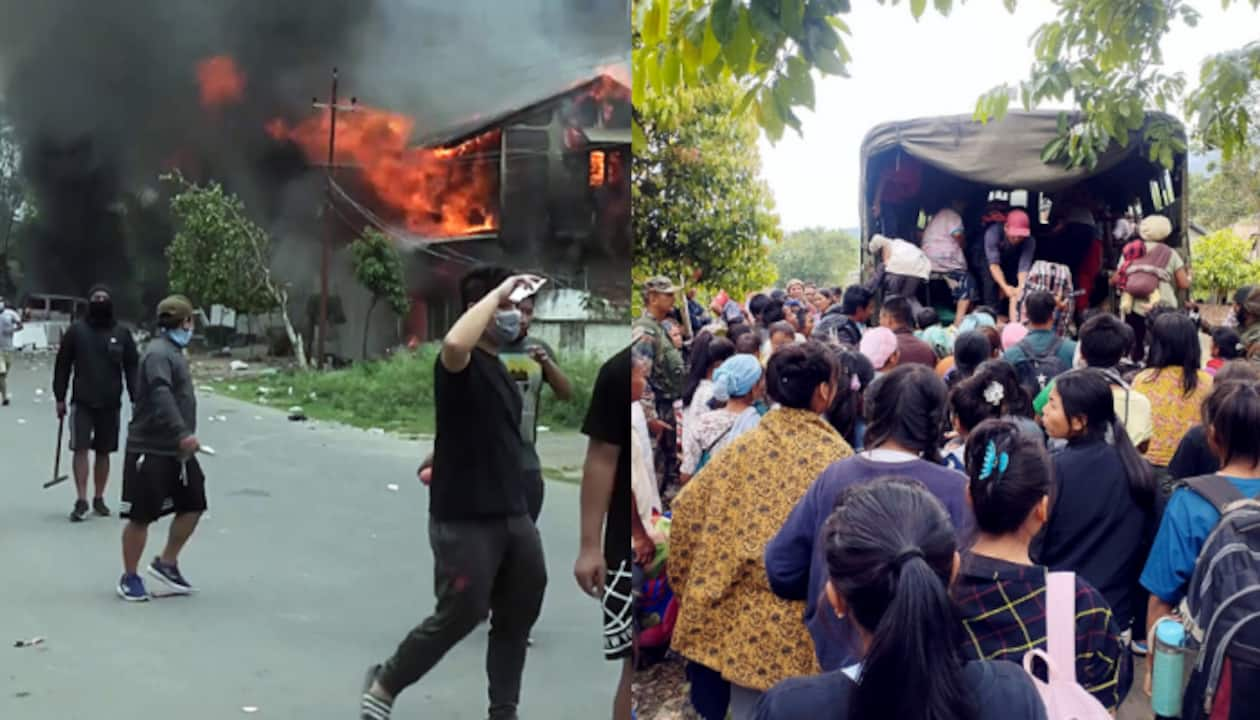
Since May 3, 2023, the challenges faced by the Kuki People have been indescribable. One hard fact is the dark cloud looming over the educational status of Kuki children. Ethnic cleansing, backed by the Manipur Government, is severely damaging the education system, depriving Kuki Children of their Fundamental Right to Education.
The Constitution of India, in Article 21A, guarantees the Right to Education as a Fundamental Right. Likewise, Article 29 and 30 guarantee Cultural and Educational Rights. These rights are the educational foundations for a student. Yet, for Kuki students, these rights remain distressingly distant.
Schools, once places of learning, are now lying in ruins. It is not just the buildings that are crumbling; it is the Fundamental Right of countless children that is being taken away. Desks, books, whiteboards, and the likes, meant to empower, are being reduced to smudges and ashes. The uniforms that symbolize hope are now tattered rags.
Instead of classrooms filled with youthful learning, Kuki children are finding themselves in Relief Centers, amidst uncertainties. Some of them are now attending temporary schools. Circumstances have led to an excessive number of students per teacher. Overcrowded classrooms are falling short of providing the quality education they deserve.
The Right to Education is not a privilege; it is a Fundamental Right, a beacon of hope that should shine even brighter in these challenging times. They deserve to be given their Educational Right. In this regard, the responsibility lies with the Central Government and must be asked these questions: Where is the protection of Kuki students' right to education? Where is the Central Government at this critical hour? How can a nation known for its commitment to education stand by, as this Fundamental Right crumbles due to State-Sponsored Ethnic Cleansing? How can the Central Government let the future of these students, the “future of the nation”, languish in darkness?
The Central Government should recognize the urgency of this situation and take swift actions to secure the future of Kuki Children. Henceforth, they must ensure that displaced Kuki children receive the quality education they rightfully deserve. Temporary schools must be adequately staffed and resourced to provide a safe and nurturing environment for quality education. Additionally, long-term solutions must be devised to mend the wounds inflicted on the education system of the Kuki Community.

Thingkho Le Malcha (TLM) is a traditional method of communication used to send out messages across the Kuki hills during the Anglo-Kuki War,1917-1919... more

If you would like to received a free softcopy of Thingkho le Malcha, you can follow our Whatsapp and Telegram by clicking the below links.
For any other media related you can contact us using below email